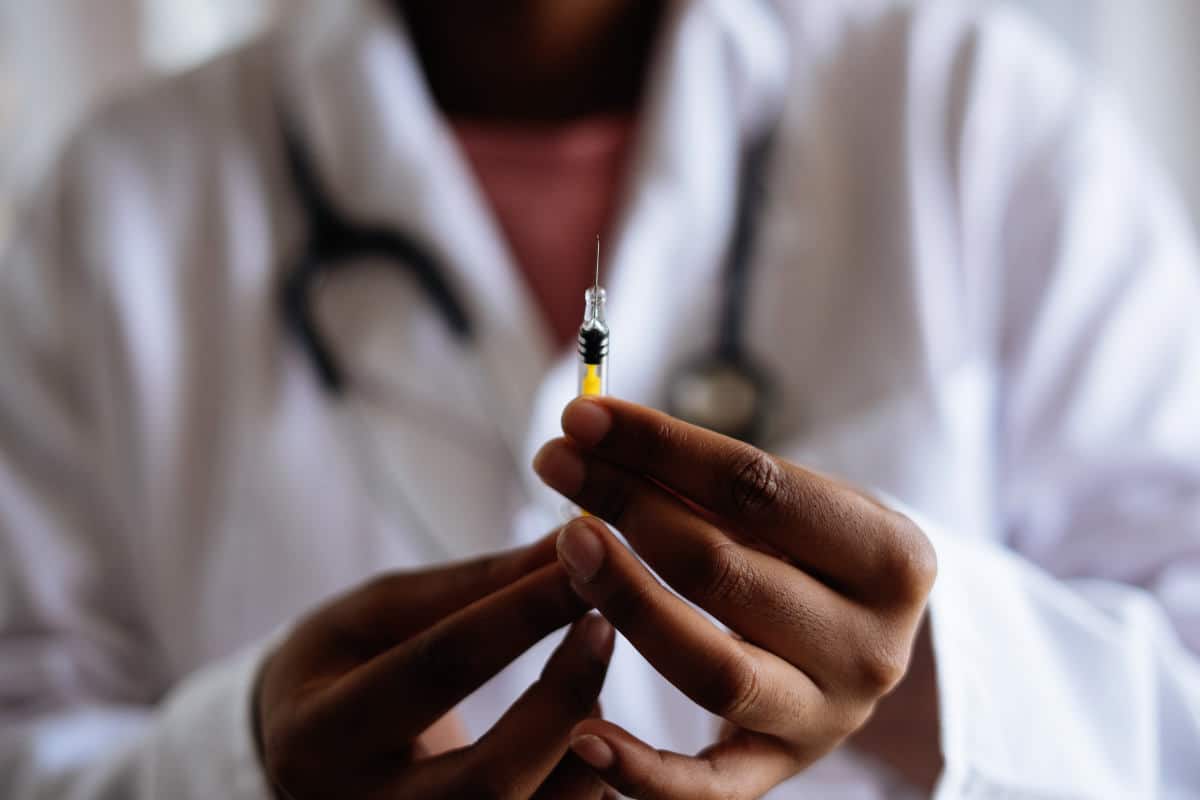
This is apparent from a British study, in which the effectiveness of two vaccines against the now dominant delta variant was examined.
Meanwhile, more and more variants of the coronavirus have conquered the world. The delta variant in particular has become dominant. Although fully vaccinated people are significantly less susceptible to this dreaded corona variant, we know that the available vaccines do not offer complete protection. And in a new study, researchers have extensively studied the effectiveness of two vaccines — Pfizer-BioNTech and Oxford-AstraZeneca — against delta variant.
Protection
According to the researchers, getting two doses of a vaccine remains the most effective way to protect yourself against the delta variant. It does appear that the vaccines protect less well against the delta variant than against the original coronavirus. For example, peak levels of the virus in people infected with the delta variant appear to be just as high as in unvaccinated people. People infected with original coronavirus have much lower peak levels after vaccination. “Here we see the real world data on how two vaccines perform,” said Simon Clarke, senior lecturer in cellular microbiology at the University of Reading. “And the datasets all show how the delta variant attenuates the effectiveness of both the Pfizer and AstraZeneca vaccines.”
Pfizer-BioNTech vs Oxford-AstraZeneca
If we compare the two vaccines, it appears that the Pfizer vaccine protects slightly better against the delta variant than the Astra-Zeneca vaccine. At least in the short term. “Of particular note is that the effectiveness of AstraZeneca is significantly reduced by the delta variant,” said Clarke. “It doesn’t seem to offer any more protection than someone would get after having had COVID-19 and then building a natural immunity. The Pfizer vaccine provided better initial protection than Astra-Zeneca. But after about five months, the level of immunity dropped.” The findings show that the effectiveness of these two vaccines is comparable after about four to five months.
breakthrough infections
The research confirms that breakthrough infections, in which fully vaccinated people still get COVID-19, are certainly not over yet. That’s because no vaccine has 100 percent efficacy; certainly not against the delta variant. Vaccination is therefore not the same as immunization. “No vaccine offers complete protection against infection with the delta variant,” said scientist Penny Ward, of Kings College London. “This is not unexpected, as complete immunity after vaccination is relatively uncommon. The prominent purpose of vaccination is to protect the individual from symptomatic, severe disease manifestations and not from the infection per se.”
However, the chance that you will get corona is a lot smaller and breakthrough infections are less serious than if someone who has not been vaccinated gets corona. “While vaccination reduces the chance of contracting COVID-19, it does not eliminate it,” summarizes researcher Stephen Evans, of the London School of Hygiene & Tropical Medicine. “What’s more important is that the data shows that vaccinated people can still pass COVID-19 on to others. It is therefore important that they are tested and go into self-isolation to limit the transmission risk.”
Third shot
So even if you’ve been shot twice, you can still get infected with the virus and pass it on. That is why there are more and more votes for a third corona jab. “The study supports the case for a third booster shot for vulnerable individuals,” Clarke said. “This is already happening in Israel.” This additional shot is therefore mainly aimed at the most vulnerable groups, who are even better protected against the coronavirus and its variants after a third dose.
Incidentally, research into such a third booster shot in the United Kingdom is already in full swing. The first findings are expected in September this year. It will then also be decided whether a third corona jab is indeed necessary. It will then be examined whether a ‘booster program’ will be launched from the autumn of this year, so that the most vulnerable in the country receive the best possible protection during the winter period.
Source material:
“Impact of Delta on viral burden and vaccine effectiveness against new SARS-CoV-2 infections in the UK” – Nuffield Department of Medicine
“expert reaction to preprint looking at the impact of the delta variant on vaccine effectiveness” – Science Media Center
Image at the top of this article: RF._.studio via Pexels